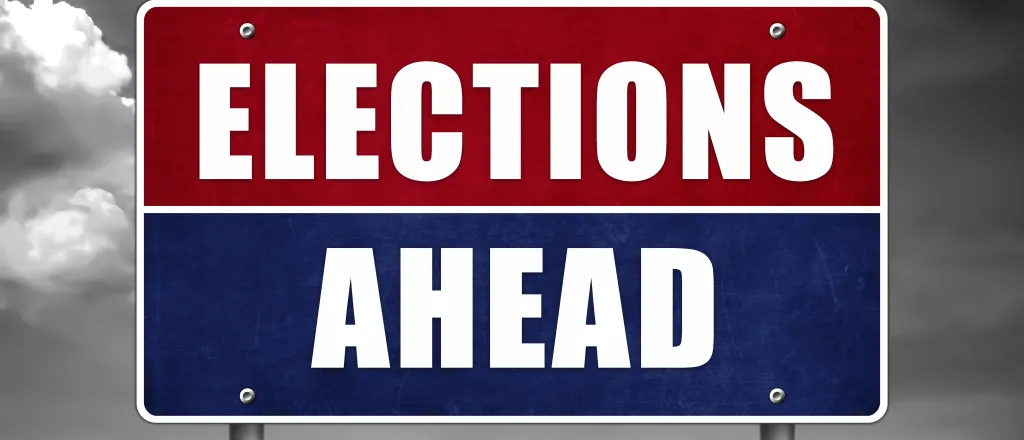
Colorado election overhaul could be broken in two as ballot-measure deadline looms
(Colorado Newsline) The wealthy donor behind a proposal to dramatically change the way Colorado elects candidates to public office told a state panel this week that he and his fellow proponents “believe intensely” that their favored system can help cure what ails American politics.
“It’s clear the credibility of our democracy is suffering from the status quo,” Kent Thiry, the former CEO of Denver-based dialysis company DaVita, told the Initiative Title Setting Review Board during a hearing Wednesday. “We all talk about it at cocktail parties. This is our opportunity to do something about it.”
Thiry’s plan — an electoral model championed by Unite America, the nonprofit he co-chairs — would replace Colorado’s party primary and assembly system with an open “all-candidate primary,” from which the top four vote-getters would advance. The general election between the top four candidates would be decided through ranked choice voting, also known as instant runoff voting, a method that allows voters to rank as many candidates as they wish in order of preference.

“The fact is democracy over the last 200 years has consistently been modified in ways that we now take take for granted,” Thiry added. “Whether it’s having women vote, whether it’s having Blacks vote, whether it’s having primaries, period — these were all changes made.”
For now, though, the proposal is once again in limbo, after the Title Board — a three-member panel composed of officials designated by the secretary of state, the attorney general and the legislative branch — ruled against a comprehensive ballot measure that would establish the “integrated system” Thiry is proposing.
Combining the changes to party nominating procedures and the general election into one measure, the board found, violates a state constitutional requirement that ballot questions only address a single subject. The board has see-sawed between approving and denying the proponents’ draft initiatives at its biweekly meetings in recent months, as Thiry’s camp has filed dozens of different versions of its proposal amid opposition from both sides of the political spectrum.
Ranked choice voting has been bitterly opposed by right-wing Republicans nationwide, especially after the results of the 2022 election in Alaska, the first to be held there after the state voted in 2020 to adopt the system backed by Thiry and Unite America. The system was credited with helping to elect Democratic U.S. Rep. Mary Peltola, who defeated former Gov. Sarah Palin to become the first Democrat to represent the state in the House in 50 years, as well as with moderate Republican Lisa Murkowski’s defeat of a more conservative challenger.
Others, including some Colorado Democrats, have faulted the system’s all-candidate, or “jungle,” primary, which would allow candidates to qualify for the primary ballot only by gathering enough voter signatures. Eliminating the option to qualify through the party assembly process, critics say, would privilege wealthy candidates who can afford to hire firms that specialize in petition drives.
Members of both parties have speculated that a possible motive behind the reforms is to make it easier for Thiry — who publicly mulled a run for governor as a Republican in 2017, then formally switched his registration to unaffiliated later that year — to mount a gubernatorial bid in 2026.
Proponents withdrew several additional versions of their measure following the Title Board’s vote Wednesday. The panel’s next hearing is scheduled for April 3.
Thiry and his fellow proponents are represented at the Title Board by attorneys from the powerful lobbying firm Brownstein Hyatt Farber Schreck. They’ve also retained 76 Group, an influential consulting firm with a long list of Republican and corporate clients, which registered the Colorado Voters First committee on Feb. 8, according to campaign finance records.
“Party insiders’ relentless efforts to protect the status quo and limit voter choice will not stop our efforts to deliver elections that better serve the interests of Colorado by letting all voters vote for any candidate in any election,” Curtis Hubbard, a spokesperson for Colorado Voters First, said in a statement Wednesday.
‘Distinctly separate’
Opponents of the ballot measure have leveled charges of “logrolling” — the practice of lumping together multiple policies that wouldn’t win approval from voters on their own. The state Constitution’s single-subject rule was adopted by voters in 1994 to guard against such efforts.
“Ballot access is a really big deal, and the mechanics of voting is another really big deal,” said Scott Gessler, a Republican attorney and former Colorado secretary of state, who spoke against the measure’s approval at Wednesday’s hearing. “And the two are distinctly separate.”
Ed Ramey, an attorney representing a group of Democrats that has objected to the proposal, agreed.
“What they want to do in the general election may work and be a vast improvement, but it matters … what the rule is to get there,” he said. “Instead of trying to load two disparate subjects, the access and the actual election, into one measure, they can certainly run two, and make the adoption of one dependent on the other.”
That’s exactly what proponents have signaled they’ll do, if necessary. They face an April 17 deadline to win approval for a ballot measure or set of measures from the Title Board, though an additional rehearing and possible court challenges could follow after that. Once approved for a “title” — an official one-sentence description of the measure that will appear on petitions and ballots — an initiative must gather 124,238 signatures from registered voters to qualify for the ballot.
Thiry said Wednesday that adopting only part of his proposed model would “destroy the multiple positive outcomes” he believes would result from the full set of reforms, hindering his stated goal of expanding voter choice and candidate diversity.
“It is the integrated system that makes this happen,” Thiry told the board. “To do otherwise … could be like changing how the pitcher pitches but not moving the catcher.”
Colorado Newsline is part of States Newsroom, a nonprofit news network supported by grants and a coalition of donors as a 501c(3) public charity. Colorado Newsline maintains editorial independence. Contact Editor Quentin Young for questions: info@coloradonewsline.com. Follow Colorado Newsline on Facebook and Twitter.
















